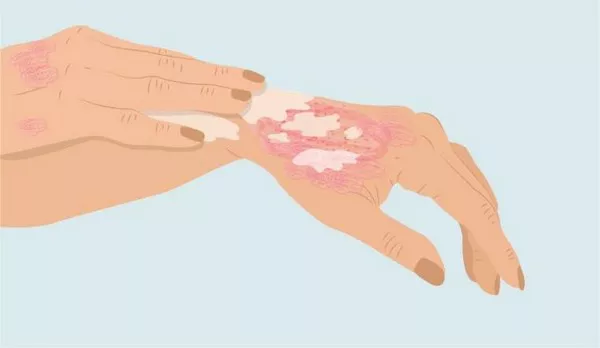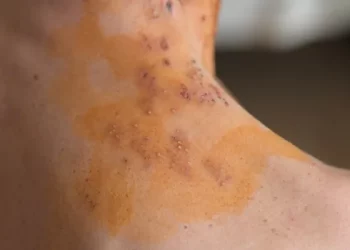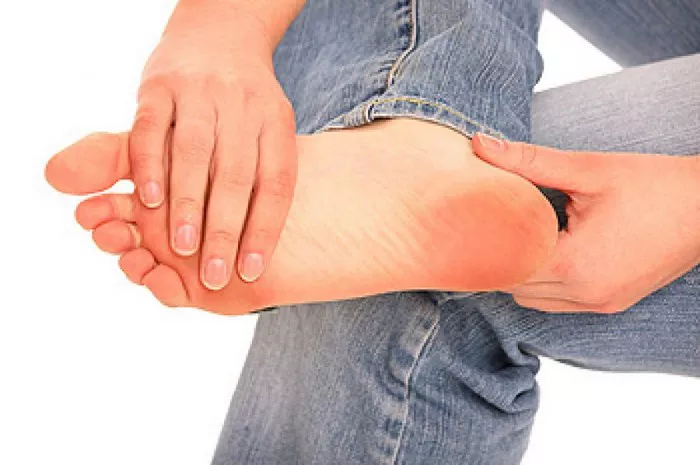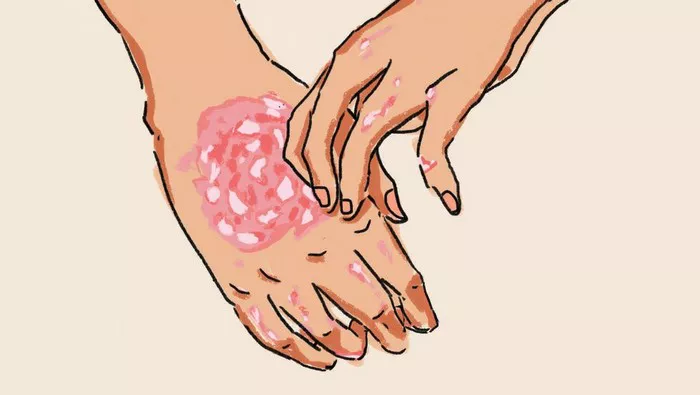Psoriasis is a chronic autoimmune condition characterized by patches of red, scaly skin caused by an overactive immune system. Psoriatic arthritis (PsA), on the other hand, is a type of inflammatory arthritis that occurs in some individuals with psoriasis. While not all individuals with psoriasis develop PsA, there is a strong association between the two conditions. Understanding the relationship between psoriasis and psoriatic arthritis is crucial for effective management and treatment. In this article, we delve into the connection between psoriasis and PsA, exploring the underlying mechanisms, risk factors, symptoms, and treatment options.
The Link Between Psoriasis and Psoriatic Arthritis
Psoriasis and PsA are both autoimmune conditions, meaning the immune system mistakenly attacks healthy tissues in the body. In psoriasis, this immune dysfunction primarily targets the skin, leading to the characteristic symptoms of red, scaly patches. However, in PsA, the immune response extends to the joints, resulting in inflammation, pain, and stiffness.
Research suggests that individuals with psoriasis have an increased risk of developing PsA compared to the general population. While the exact cause of PsA remains unclear, genetic predisposition and environmental factors are believed to play significant roles. Certain genetic markers, such as the HLA-B27 gene, have been associated with both psoriasis and PsA, indicating a genetic link between the two conditions.
Understanding the Mechanisms
The mechanisms underlying the development of PsA in individuals with psoriasis are complex and multifactorial. Chronic inflammation is thought to be a key driver, contributing to both skin and joint manifestations of the disease. In psoriasis, inflammatory cytokines, such as tumor necrosis factor-alpha (TNF-alpha) and interleukins, promote skin inflammation and the formation of psoriatic plaques. These same inflammatory mediators can also affect the joints, leading to the development of PsA.
Furthermore, immune dysregulation in psoriasis may trigger an autoimmune response against joint tissues, similar to what occurs in other autoimmune arthritic conditions like rheumatoid arthritis. The presence of autoantibodies targeting specific proteins within the joints further supports the autoimmune nature of PsA.
Identifying Risk Factors
While having psoriasis is the primary risk factor for developing PsA, certain factors may increase an individual’s likelihood of developing the arthritis. These include:
1. Family History: A family history of psoriasis or PsA significantly increases the risk of developing PsA.
2. Severity of Psoriasis: Individuals with more severe psoriasis, particularly those with widespread skin involvement or nail psoriasis, are at a higher risk of developing PsA.
3. Age: PsA can develop at any age, but it most commonly appears between the ages of 30 and 50.
4. Obesity: Obesity has been linked to both psoriasis and PsA, possibly due to the systemic inflammation associated with excess adipose tissue.
Recognizing Symptoms
PsA can affect any joint in the body, but it most commonly involves the fingers, toes, wrists, knees, and lower back. The symptoms of PsA can vary widely among individuals but may include:
1. Joint Pain and Stiffness: Persistent pain and stiffness, particularly in the morning or after periods of inactivity, are hallmark symptoms of PsA.
2. Swelling and Tenderness: Inflamed joints may appear swollen, warm to the touch, and tender.
3. Nail Changes: Psoriatic nail changes, such as pitting, discoloration, and separation from the nail bed, are common in individuals with PsA.
4. Fatigue: Chronic inflammation and pain can lead to fatigue and a general feeling of malaise.
5. Skin Symptoms: Some individuals with PsA may experience new or worsening psoriasis symptoms, such as increased plaque formation or new lesions.
It’s important to note that PsA can also affect other tissues and organs, leading to complications such as uveitis (inflammation of the eye), cardiovascular disease, and metabolic syndrome.
Diagnosis and Treatment
Diagnosing PsA can be challenging, as it shares symptoms with other types of arthritis, such as rheumatoid arthritis and osteoarthritis. A comprehensive evaluation, including a physical examination, medical history, imaging studies, and blood tests, is often necessary to confirm the diagnosis.
Treatment for PsA aims to alleviate symptoms, prevent joint damage, and improve quality of life. The approach may involve a combination of medications, lifestyle modifications, and physical therapy:
1. Nonsteroidal Anti-Inflammatory Drugs (NSAIDs): NSAIDs, such as ibuprofen and naproxen, can help reduce pain and inflammation in the joints.
2. Disease-Modifying Antirheumatic Drugs (DMARDs): DMARDs, including methotrexate and sulfasalazine, are often prescribed to slow disease progression and preserve joint function.
3. Biologic Therapies: Biologic drugs, such as tumor necrosis factor (TNF) inhibitors and interleukin inhibitors, target specific components of the immune system involved in the inflammatory process.
4. Corticosteroids: Injections of corticosteroids may be used to reduce inflammation in severely affected joints.
5. Physical Therapy: Exercise and physical therapy can help improve joint flexibility, strength, and range of motion.
6. Lifestyle Modifications: Maintaining a healthy weight, avoiding smoking, and managing stress can help reduce inflammation and improve overall health.
Early diagnosis and intervention are crucial for preventing joint damage and disability in individuals with PsA. Close collaboration between dermatologists, rheumatologists, and other healthcare providers is essential for comprehensive management and treatment.
Conclusion
Psoriasis and psoriatic arthritis are interconnected autoimmune conditions with shared genetic and immunological mechanisms. While not all individuals with psoriasis develop PsA, the risk of developing arthritis is significantly higher in this population. Understanding the link between psoriasis and PsA is essential for early detection, diagnosis, and management of both conditions. By recognizing the symptoms, identifying risk factors, and implementing appropriate treatment strategies, healthcare providers can improve outcomes and quality of life for individuals living with psoriasis and PsA. Continued research into the underlying mechanisms and novel treatment approaches holds promise for better understanding and managing these complex autoimmune diseases in the future.
























